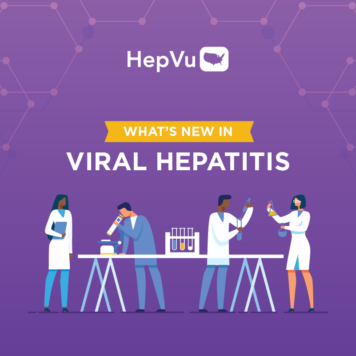In June 2024, the U.S. Food and Drug Administration granted marketing authorization to Cepheid for the Xpert HCV test and GeneXpert Xpress System, the first Hepatitis C virus (HCV) RNA test that can be used to bring diagnosis to appropriately certified point-of-care settings for individuals at risk for Hepatitis C.
This series of one question blogs on viral hepatitis elimination explores what the impact of a domestic point of care HCV RNA rest will be on efforts to end the Hepatitis C epidemic in the U.S. We asked a series of experts to give their thoughts on a variation of the below question:
Q: What is the impact of the recently FDA licensed test for HCV RNA on our efforts to eliminate hepatitis C virus?
GENERAL HEPATITIS C ELIMINATION EFFORTS
Steffanie A. Strathdee, PhD, Division of Infectious Diseases and Global Public Health, UC San Diego Health Sciences
Point of care HCV RNA testing is a critical tool that tells people who have been infected with Hep C and their care providers if they have active infection; in other words, whether they need treatment or not. People who inject drugs are the population most affected by Hep C, so the availability of this test should be a game changer for them.
IMPLICATIONS FOR CORRECTIONAL HEALTH
Matthew J Akiyama, MD, MSc, Associate Professor of Medicine, Albert Einstein College of Medicine
Point of care HCV RNA testing has been available in countries outside the US for several years and has shown dramatic improvements in time to HCV diagnosis, linkage to care, treatment initiation, and subsequent cure. Point of care HCV RNA testing will be a particularly important tool in US jails, which are facilities that house people awaiting trial or serving short sentences. Because the average lengths of stay in US jails are far shorter than the duration of HCV treatment, it’s critical to make a timely diagnosis. If this opportunity is missed, the period after incarceration is known to be challenging in terms of linkage to care. Improving the speed of testing and treatment in U.S. jails will benefit a vulnerable, hard to reach population while reducing ongoing HCV transmission in communities to which incarcerated people return making such efforts critical to HCV elimination.
IMPLICATION FOR PEOPLE WHO INJECT DRUGS (PWID)
Tyler Bartholomew, Ph.D., Assistant Professor,University of Miami Miller School of Medicine, Principal Investigator, IDEA Lab
The newly FDA approved point-of-care HCV RNA test has the potential to revolutionize the HCV testing, linkage to care and treatment landscape in the US, particularly for people who inject drugs. We know that syringe services programs continue to play a vital role in providing life-saving services to this community, including low-barrier, stigma-free HCV testing and treatment services. With the proper financial resources, infrastructure development, and training that center syringe services programs in our national implementation and scale-up efforts of this new testing technology, we may make viral hepatitis elimination an achievable goal.
Q: Recognizing that the FDA recently licensed a point-of-care test (POCT) for HCV RNA and that such tests have been available outside the United States for several years, what has been the impact of POCT HCV RNA on global hepatitis C elimination efforts?
GLOBAL HEPATITIS C ELIMINATION EFFORTS
Rania A. Tohme, MD, MPH, Associate Director for Global Health, Division of Viral Hepatitis, Centers for Disease Control and Prevention (CDC)
The World Health Organization has set a goal to eliminate hepatitis C by 2030 with a target to reduce the incidence of chronic hepatitis C virus (HCV) infection by 80% and reduce related mortality by 65%. Achieving these goals will require diagnosing at least 90% of persons with chronic HCV infection and treating at least 80% of those diagnosed. Therefore, prompt diagnosis of infection and linkage to care and treatment are key to achieve hepatitis C elimination goals.
Experiences in several countries have shown that use of a point of care test (POCT) for HCV RNA has reduced the time from HCV antibody testing to diagnosis of current HCV infection, and from diagnosis to treatment initiation. HCV POCT also increased the percentage of persons diagnosed and treated for hepatitis C compared to laboratory-based tests. Availability of HCV RNA POCT and direct acting antiviral treatment for HCV in the same location and during the same visit further reduced loss to follow-up and increased treatment initiation.
Use of HCV RNA POCTs has been most impactful when available at sites that provide services to populations disproportionately affected by the hepatitis C epidemic, such as persons who inject drugs or who are incarcerated. In addition, studies in other countries have shown high acceptability for an HCV RNA POCT that can be performed on a fingerstick, can provide results in one visit, and can be paired with same day treatment.
Despite the advantages of the existing HCV RNA POCTs, there are major obstacles to further scale up their use in global settings including high costs, the length of time to get results (about 60 minutes), and the need to be run on a testing platform that requires additional training and maintenance. While the currently available POCTs for HCV RNA provide opportunities to advance prompt diagnosis and treatment of HCV infection, additional tools are needed that provide results faster, are less complex, and less expensive.
For additional information about the new point of care HCV RNA test, please see NVHR’s recent blog.



